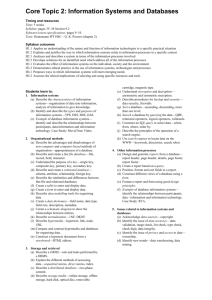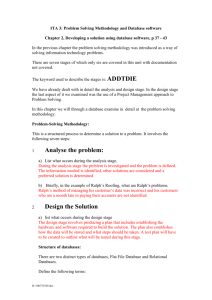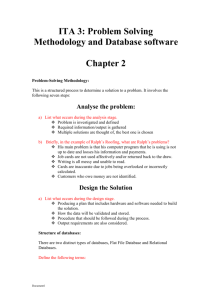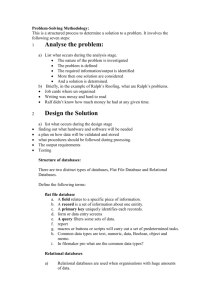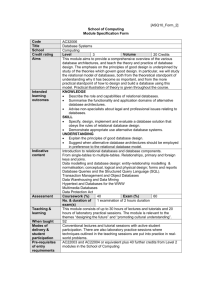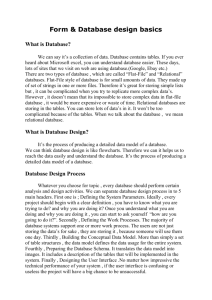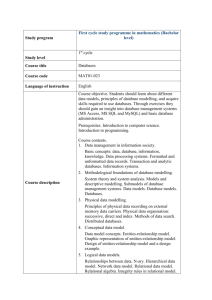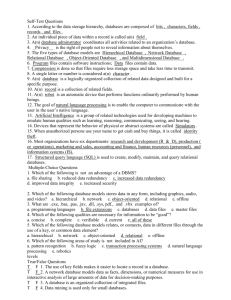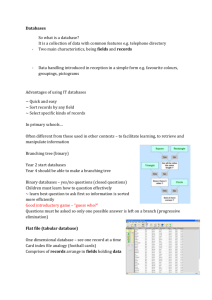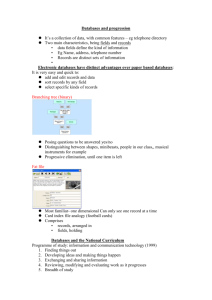Accounting Database Design Project Guidelines
advertisement
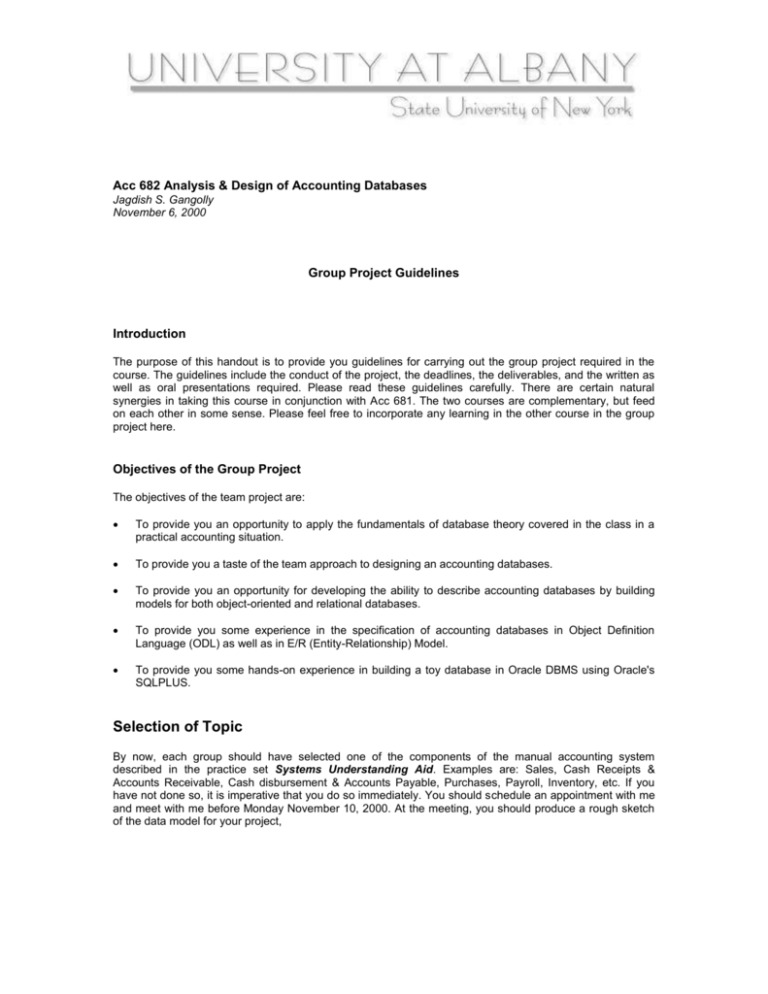
Acc 682 Analysis & Design of Accounting Databases Jagdish S. Gangolly November 6, 2000 Group Project Guidelines Introduction The purpose of this handout is to provide you guidelines for carrying out the group project required in the course. The guidelines include the conduct of the project, the deadlines, the deliverables, and the written as well as oral presentations required. Please read these guidelines carefully. There are certain natural synergies in taking this course in conjunction with Acc 681. The two courses are complementary, but feed on each other in some sense. Please feel free to incorporate any learning in the other course in the group project here. Objectives of the Group Project The objectives of the team project are: To provide you an opportunity to apply the fundamentals of database theory covered in the class in a practical accounting situation. To provide you a taste of the team approach to designing an accounting databases. To provide you an opportunity for developing the ability to describe accounting databases by building models for both object-oriented and relational databases. To provide you some experience in the specification of accounting databases in Object Definition Language (ODL) as well as in E/R (Entity-Relationship) Model. To provide you some hands-on experience in building a toy database in Oracle DBMS using Oracle's SQLPLUS. Selection of Topic By now, each group should have selected one of the components of the manual accounting system described in the practice set Systems Understanding Aid. Examples are: Sales, Cash Receipts & Accounts Receivable, Cash disbursement & Accounts Payable, Purchases, Payroll, Inventory, etc. If you have not done so, it is imperative that you do so immediately. You should schedule an appointment with me and meet with me before Monday November 10, 2000. At the meeting, you should produce a rough sketch of the data model for your project, Conduct of the Group Project STEP 1 (Due: November 17, 2000) Identification of Classes, Attributes, Methods, as well as the first draft of the E/R Model. The ODL specifications should include your first thoughts on data structures to be used for the specification of attributes as well as the relationships. STEP 2 (Due: November 24, 2000) The complete models in ODL and E/R diagram, with an explanation of their conversion to the relational schema. STEP 3 (Due: December 1, 2000) The first draft of the implementation in Oracle8i (the code in SQL creating the tables, populating them as well as some code for extracting the information desired from the database you have created. STEP 4 (Due: December 8, 2000) Submission of the first prototype system. This should include the complete functioning queries, with the script for an execution. Submission of the first draft of the group project report. This must be a web document placed in the directory of one of the group members. STEP 6 (Due: December 11, 2000) Submission of the final group written report. This is the revised version of the report. You will have the opportunity to revise the report based on the comments obtained during the class oral presentation of the report. Deliverables A very brief written report that should include a description of the database from an object- oriented, EntityRelational Modeling, as well as relational view. You should attach the code as well as the diagrams to this report. This report should be a web document that you place in the directories of one of the group members. The final report is due on December 1, 2000. Guidelines for the Oral class presentation There will be an oral group presentation of the project during the last day of class (December 11, 2000). Each group will have approximately 25 minutes to present the report to the class. The presentation must be professional in spirit. You must assume that this is the presentation that you would make to your client in accounting practice. It should be organized to convince the client that it is superior to the existing system. It should include a description of the existing accounting database as well as your design. You must discuss the modeling as well as the final design and implementation (including the code). You can use transparencies, or use whatever presentation software you wish to use (I shall arrange to have a PC (with projection equipment) in the class on the presentation date. Updated November 6, 2000 by Jagdish S. Gangolly. 2

